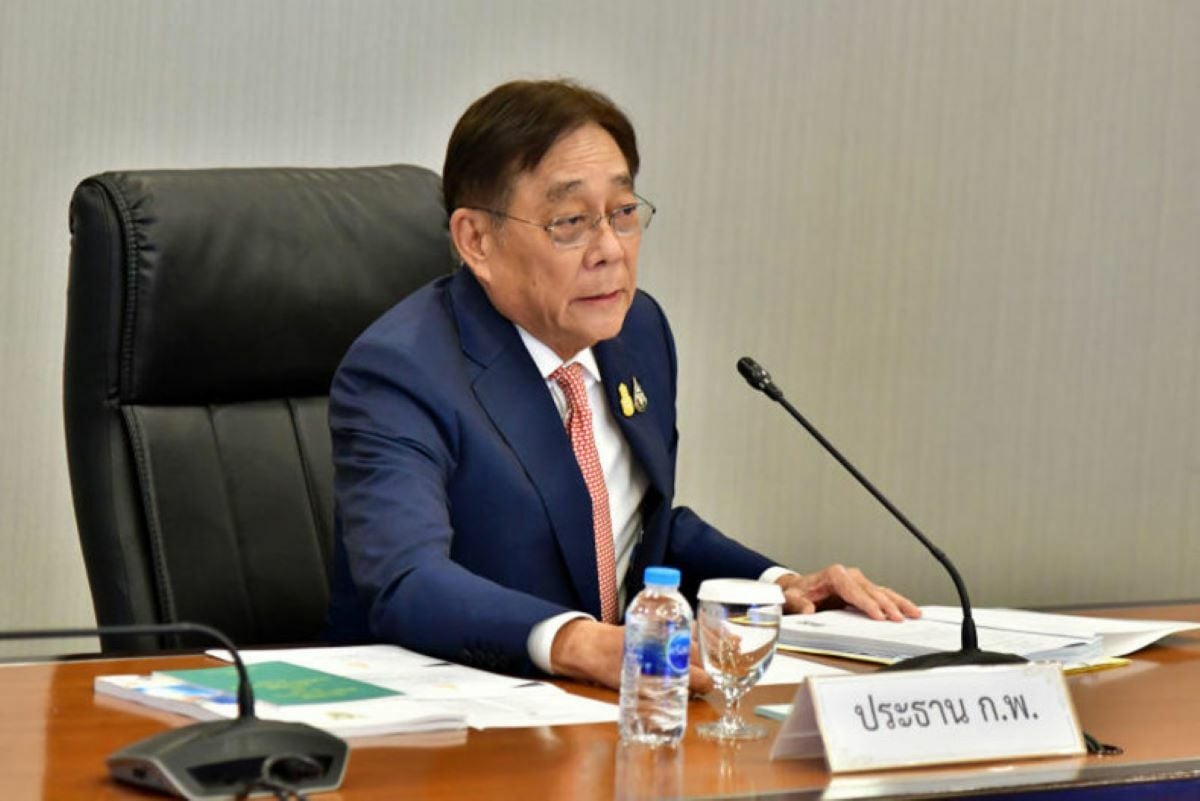Thailand targets 3.5% GDP growth amid economic challenges

The Finance Ministry of Thailand has ambitiously set the stage for GDP growth by targeting a 3.5% annual increase. This announcement was made at the CEO Econmass Awards 2024, where Finance Minister Pichai Chunhavajira delivered a keynote address.
The minister expressed optimism that next year’s growth rate could reach 3%, marking a 10% increase from this year’s forecasted 2.7%.
“This 3% rate does not take into account the opportunities or potential Thailand has. Historically, Thailand’s GDP has grown as high as 5 to 6%.”
The minister highlighted the importance of achieving a real GDP growth of 3.5% and suggested an ideal inflation rate of at least 2% for Thailand, while some countries find 2.5% acceptable in pursuit of high economic growth. Over the past decade, Thailand’s growth has been subdued, with an average of only 0.4% since the pandemic years.
In 2022, the growth was 1.9%, and this year it is expected to be 2.7%. Pichai noted the decline in Thailand’s manufacturing sector, especially among small businesses, with utilisation rates dropping to as low as 50% at times. Pichai posed a critical question regarding economic choices between lower prices with limited purchasing power and higher prices with more money in consumers’ pockets.
“We have to choose. Do we want lower prices for goods, but not much money to buy things? Or do we want higher prices for goods, but more money in consumers’ pockets?”
Pichai stressed the need to prioritise economic growth over austerity measures and underlined the necessity of promoting domestic investment. He pointed out that the country’s liquidity could support investment, though current levels have diminished. He likened Thailand to a financially stable nation lacking future investment.
Considering global trends
Investment should align with global trends, such as the digital and green economies, along with efforts to enhance human skills, suggested the minister. He also cited that Board of Investment applications for 2023 and this year reached 2 trillion baht, the highest in a decade.
One of the government’s investment promotion strategies includes amending the leasehold asset law and extending land leases up to 99 years from the current 30 years. This move aims to boost foreign investor confidence by offering long-term, worthwhile investments with land rights that can be used as collateral for loans.
Pichai emphasised the need for infrastructure investment, particularly in logistics, which comprises 18% of Thailand’s GDP. An important project is the Land Bridge, designed to establish a transport hub between two oceans, thereby reducing shipment costs to and from China.
The Joint Standing Committee on Commerce, Industry and Banking (JSCCIB) supported the ministry’s GDP growth outlook for 2025, driven by tourism, government stimulus measures, and an improving global economy. The JSCCIB forecasts Thai GDP growth of 3.5 to 4% next year, bolstered by enhanced trade and exports.
Chairman of the Federation of Thai Industries, Kriengkrai Thiennukul reveals the possible challenges which may pose a danger to the Thai economy.
“The JSCCIB hopes geopolitical conflicts will not turn more severe, affecting the Thai economy.”
Tourism rebounding
With tourism rebounding, foreign tourist arrivals are expected to hit 40 million next year, up from this year’s target of 36 million. However, Payong Srivanich, chairman of the Thai Bankers’ Association, cautioned that prolonged high levels of household debt could impact the 2025 economy.
Sanan Angubolkul, chairman of the Thai Chamber of Commerce, noted that severe flooding in the North has negatively impacted the economy this year, reducing growth projections to 2.6 to 2.7%.
He expressed support for the government’s efforts to join BRICS, a coalition of Brazil, Russia, India, China, and South Africa, which is developing a new payment system to lessen reliance on the US dollar, reported Bangkok Post.
Latest Thailand News
Follow The Thaiger on Google News:


























